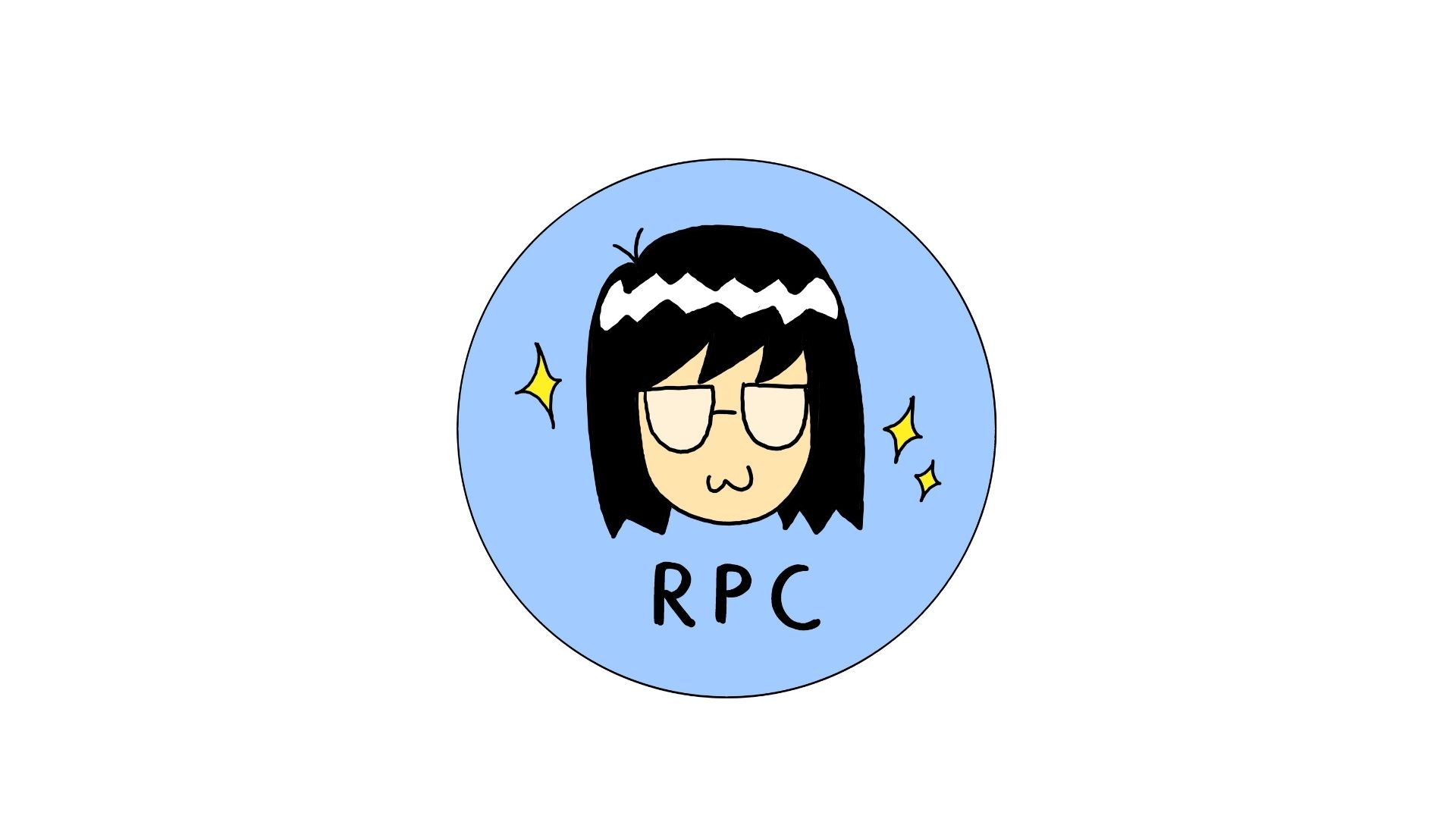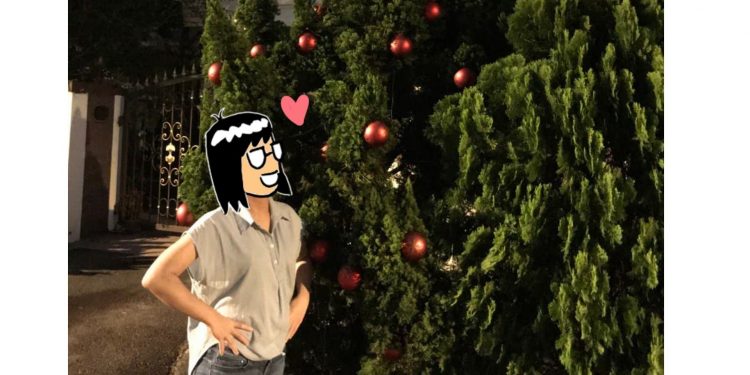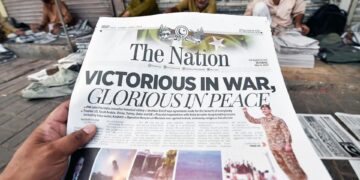If you are a Singaporean on Instagram, the adorable yet thought-provoking works of @RachelPangComics (RPC) would probably have appeared on your feed at one point or another.
Within a short span of three years since their online platform RPC was created, they have emerged as an “online Robin Hood”, shedding light on the lesser-known struggles of those within the LGBTQ+ community as well as that of sexual assault survivors.
Mx Rachel Pang, who goes by they/them pronouns, does not like to put themselves in a box. They prefer to see the myriad of issues they touch with their comics — including sexual assault, racism, and mental health, among many others — as deeply interconnected.
“I guess if we try to artificially separate these issues, then we will miss the bigger picture, which is that many of them are systemic, caused by the same root problems,” they say.
Having studied Political Science and American Studies during their college years in the United States, Mx Pang has always been bothered by the inaccessibility of lengthy, jargon-ridden academic essays.
“When I think about my parents who didn’t go to university, I know people like them are not going to read this stuff,” they say, highlighting that their decision to choose comics as a medium to reach the average Singaporean was highly intentional and driven by this fact.
Led by their passion to fill glaring gaps in Singapore’s current discourse, Mx Pang represents the voices of many marginalised groups in the largely heteronormative and top-down country.
TheHomeGround Asia chats with the vivacious yet humble personality about their unorthodox journey as a Singaporean comic artist, how they value their craft, and how they seek to reshape Singapore’s often problematic narratives — one comic at a time.

TheHomeGround Asia (THG): How did you begin your journey in drawing comics?
Rachel Pang (RP): I’ve always liked drawing since I was a kid. But, you know, this is Singapore. Who would encourage that? It’s not like my parents or society promoted the arts as a viable career option. So I let it fall to the wayside growing up. It was only when I went to university that I had a professor who encouraged me to draw comics again. She told me that my voice matters, and that it was especially important for marginalised groups of people, [like myself], to share our stories. They’re not usually represented in mainstream media, and the people in power are not usually from these backgrounds, so the stories can really make a difference. That’s how I started drawing again.
But it was not until 2018 when I returned from the US. There was some stuff going on in the world then (like the Brett Kavanaugh saga), that I began sharing my comics publicly. I was very upset about it, but at the same time, I thought that the way people were discussing it wasn’t really make sense to me. So I began to put my comics out there. I wanted to share my viewpoint as a sexual assault survivor, and how the whole thing was affecting me. I drew a comic and posted it on my private Instagram account, and my friends said, “well, this is really good! You should create an account for it!” That was when I created @RachelPangComics (RPC), and the rest is history.
THG: Were you inspired by anything in particular during your childhood?
RP: When I was in primary school, they used to print diaries for us every year. I remember one year, there was a comic done by a senior talking about climate change, and I thought it was so cool. I often wonder where the person is now. Perhaps I should look them up. When I was young, my mum also ran a bookshop for a while. So I was quite fortunate to be surrounded by books.
THG: Did you expect your account to grow this much? How do you navigate the fame?
RP: Definitely not! I think I need to figure out a way to make sure that it doesn’t go to my head, like what I shared in my latest comic, “power causes brain damage”. In this day and age, having a large online following is definitely a form of power. So I need to make sure I keep my ego in check! Regarding “fame”, when I’m putting out content, I try not to think whether people will like it or not, and focus on what resonates most with me.
THG: What is it about this particular art form that appeals to you?
RP: It’s interesting that you asked this. When I was in university studying Political Science and American Studies, most of my friends wrote long academic essays to share their thoughts. But I felt like this form of writing was rather inaccessible. In political science especially, I found the writing to be very pompous and overly chim (Hokkien for profound), and I hated it — don’t come for me please, political science majors; it’s not you, it’s me!
When I think about my parents who didn’t have a university education, I know people like them are not going to read this stuff. So whenever I think about what I’m doing, my thoughts always go to those who are going to read it, or whether they are able read it. I thought that comics is probably one of the more accessible ways to communicate. You look at a nice little picture, and there are words to explain it. It was quite a conscious choice to go with comics instead of essays or pure abstract art to communicate my views.
THG: Where do you draw inspiration for your content?
RP: I guess I write primarily from my own personal experience. Obviously, I care a lot about social issues and they are what I discuss more on my platform. These include current events or things that are happening in Singapore — usually what provokes a response are things that make me feel a bit buay song (Hokkien for angry or unhappy about), like, “this is bad” and sometimes also “why is no one talking about this particular part of the issue?”
For example, when migrant worker Tofazzal Hossain was killed in a lorry accident in April this year, we knew it’s bad, a terrible thing. Many activists for years have been advocating for safer transport options for construction workers. I wanted to add on to this advocacy and make a comic to draw attention to this issue, and point out that it’s a systemic one that can be solved with policy change. I wanted readers to think about who exactly we would accept being transported in the back of a lorry, why that might be the case and what can be done to change this status quo.
THG: How long does it take, on average, for you to make a comic?
RP: Usually the words will come to me first. I’d be hanging out with my friends, having lunch, or alone in bed and then bam, I’ll think of a line like “the future is not fixed”, and then I’ll write it down first in my phone. The next day, I’ll turn on my computer and I will expand from the words that I had penned.
If I’m drawing for my own Instagram, it would usually take a rather short time for me to finish a comic — about two to three hours. But recently, a magazine asked me to draw a comic for them, and that took hours because I wanted every line to be perfect, since it would be in print! I think it really depends on where it’s being published.
THG: You touch on so many issues in your work. Is there any topic that you are particularly partial to?
RP: People tend to categorise people, like, “oh, this person is an advocate for gender issues only!” But for me, all issues are connected. There’s no way you can only talk about one. If you are a specialist with deep knowledge on one topic, that’s cool. But I guess if you try to artificially separate the issues, then we will miss the bigger picture, which is that many of these are systemic, caused by the same root problems. This is why whenever I talk about a matter in question, I try to bring it back to the larger system. Everything is connected and because of this, I don’t think I can narrow it down to one or even a few topics that I’m interested in.
THG: Are there issues that are harder for you to discuss then?
RP: When I talk about personal trauma, it can be hard because I have to relive it. As much as I have been trying to heal and going for therapy, there are some things that are still unresolved — healing is lifelong after all!
In a way, making art sometimes feels like a necessary part of the healing process. For my comic on the Raeesah Khan saga, for example, I tried to ignore what was going on at first. But then it got to a boiling point where the media circus truly eclipsed the original issue of gender inequality and police handling of sexual assault. I couldn’t look away anymore. Even as I was creating the comic, I was in pain and fuming. But I think after I crystallised my thoughts and I shared what I created with the world, it became a form of release.
THG: Would you call yourself an artist?
RP: This is going to sound really strange, but I’m not really a visual person. When I first started, adding drawings felt a bit like a means to an end to make the message more accessible. My first drawings started out as stick figures!
At first, when people called me an artist, I’d laugh and say, “haha, no la!” I had a bit of imposter syndrome. But now, I’ve accepted it because I have redefined what being an artist means. To me, an artist is someone who acts with intention — and in that way, everyone can be an artist. If you cook a delicious meal, then that meal is your work of art. Based on that definition, if you’re living an intentional life, then you are an artist.
But I think everyone can do what I do as long as they have the intention. And after having drawn comics for the past three years, I definitely feel more “artsy”, being more calculated with space and improving my control of the movement of drawing.
THG: How, then, do you value your craft?
RP: “Value” is a very tricky word. I do my comics for a number of reasons. One, because it’s a way for me to process my emotions. Two, I think as humans, expressing ourselves and being validated by other humans is very powerful. To see that others actually resonate with my experiences or sentiments helps me a lot. Thirdly, I do see the value of my work in filling certain gaps in our current discourse, be it rethinking certain structural issues or trying to introduce the perspectives of certain marginalised groups — such as LGBTQ+ folks or sexual assault survivors.
Actually a lot of other people have said the things I’m saying but in many other forms. They might be a lot less accessible. For example, in academia you’re encouraged to use jargon, to distance yourself from the subject matter to remain “objective”. Many academics think that if you write about yourself, then you might be biased. But to me, everyone is biased about something. It’s just that dominant discourse has been made invisible so it appears “neutral” or “objective”, when in reality, it’s still a subjective and political way of looking at the world.
I embraced this subjectivity when I decided not to pursue any form of academic writing. Now, when I talk about an issue, the entry point is usually myself and my own experience. I try to get people to engage by showing them how I, an average person, experience and view a certain topic and in the way that every single person in the world, not just me, has a unique point of view. I guess one “value” of my work is its subjectivity.
THG: Which pieces of work are you most proud of?
RP: I submitted this comic for a competition by The Substation. It was a breakthrough moment for my artistic skill because I think before then, I hadn’t tried anything quite so ambitious and abstract. I was pretty proud of that one, but not many people responded to it.
There’s another comic which I found amazing and hilarious, but nobody “liked” it!
I constantly remind myself to not be too affected by social media. Validation of my human experience is important to me and I’m lucky to receive that for many of my comics. But there are ones that I particularly like that fewer people tend to “like”. That’s really fine. You can’t control how people will respond to your work.
THG: What holds you back at times?
RP: I don’t really feel constrained by wanting to get “likes”. What influences me more is being worried about upsetting the government with my comics. For example, during the elections last year, I was like, “man, I want to talk about this, but I really don’t want to get detained”. In the end, I still talked about it. I did experience fear and will sometimes self-censor. At times, I choose not to post about certain issues when I find that it’s not worth the risk.
THG: What do you think of the ways we value artists like yourself here in Singapore?
RP: There is not much of a culture of giving artists money in Singapore. So actually, I have a Patreon account where my followers can support my craft financially every month. More than half of my patrons are non-Singaporeans, even though they only contribute to about 20 percent of my following on Instagram. It’s interesting…
With the new FICA (Foreign Interference (Countermeasures) Act), it also raises questions for me about whether I have to stop receiving money from foreign patrons. Do I have to throw away my dream of being a full-time artist? That’s an obstacle that Singaporean artists who make political work have to face now.
THG: Are there other comic artists that you love?
RP: There is this webtoon called Boyfriends, which is an LGBTQ+ series created by an Indonesian comic artist, @refrainbow, on Instagram. I really admire his work and it’s amazing how he’s a fellow Southeast Asian who has made it really big, being featured on Webtoons and the like.
THG: What do you have to say to budding artists like yourself?
RP: I think it’s incredible when anyone starts doing any art at all! I would say that as long as you continue to find meaning in doing this for yourself, you should keep going and don’t give up even if you feel like you’re “not that good” or that you aren’t getting many “likes”.
When I first started, I also felt my art was not great. Since I have been posting online for three years, whenever I look back at my earlier comics, I can really see turning points in my artwork where I showed some growth.
For example, if you look at my earlier comics, there was no distribution of space at all. It was very cramped. But one day, an artist friend messaged me with a “chef’s kiss”, saying “good job”, because she could see my improvement in terms of visual use of space. Finding community and people who can witness your growth and support you can be really helpful! Artmaking doesn’t have to be a solitary process.
Join the conversations on TheHomeGround Asia’s Facebook and Instagram, and get the latest updates via Telegram.














